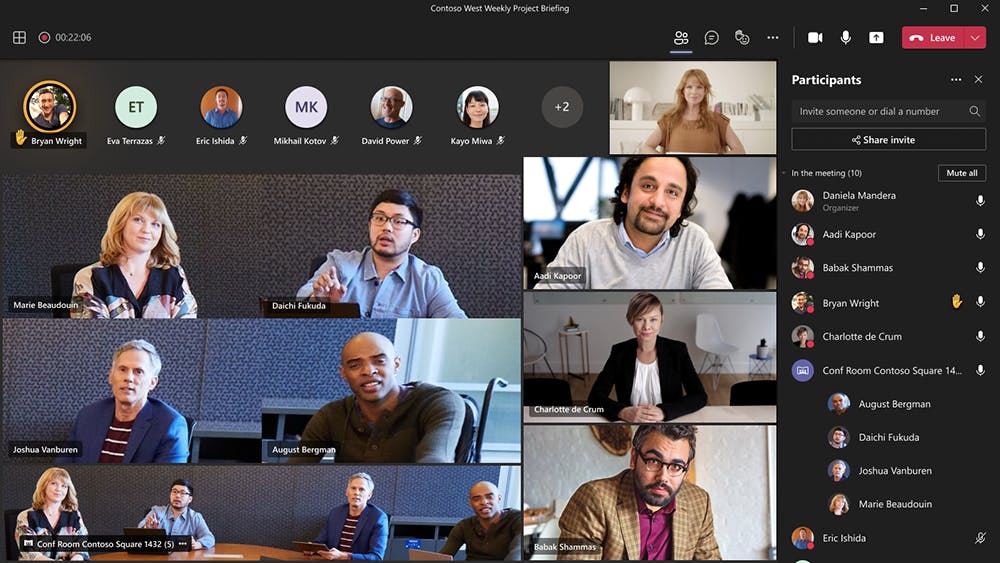
About ECR Meetings
Any retailer, CPG or academic is invited to participate in any of the working group meetings participate, at no cost. Each session will start with a retailer case study or new research study, the group will then discuss the learning points. Be ready to contribute to the discussion.
Nov 30th - Food Waste Innovation Challenge
Finding new ways to prevent food from being thrown away is a priority for retailers around the world. In September, ECR will publish a list of the Top 30 Food Waste Innovations, in this session, we will hear from ten of the Top 30, with each innovator delivering a five minute pitch, to be followed up by a five minute Q&A. Retailers and producers will be encouraged to complete a survey form after each innovation, stating their intention for any next steps or not!
Dec 6th - Using Age Verification AI at Self Checkouts
Age restricted items, such as knives and alcohol, in certain countries and retailers, can trigger up to 15% of the interventions that need to be made the self checkouts. These interventions frustrate and slow down the [obviously] over 25 customers, while creating the opportunity for challenge with other customers.
In this working group session, the group will turn its attention to the use of age verification video technologies at SCO, with insights from retailers actively pursuing a scaled deployment in pursuit of colleague safety, productivity and customer satisfaction (fewer interventions)
Dec 6th - Webinar - Self Checkout Supervisor Research Launch
How do those on the front line, and supervising the self-checkout machines feel about their work, the training, their ability to provide customer service and protect against losses? What gets in the way, what frustrates them and how would they recommend their business prioritises improvements?
These are the questions we asked of Self Checkout hosts, over 6,000 responses were gathered, and this webinar is the official launch of those findings and the report. The webinar will begin with a short introduction from ECR Retail Loss Chair, John Fonteijn, then Professor Beck will share the findings and the implications for retailers. There will then be responses from a panel of retailers from the SCO working group including Auchan, Target and Tesco.
Immediately after the session, the attendees will receive a link to a free download of the report
Dec 7th - RFID as a tool for Loss Prevention
Can RFID really be a tool for loss prevention? What thief is actually going to be deterred by the application of an RFID swing tag label? With over five years of experience of using RFID in his business, Macy’s, Joe Coll will share his learnings on how RFID has been an effective tool for loss prevention for their business. The group will then discuss his findings and then share back their own learnings to date, and their thinking going forward on new trials and use cases of using RFID as a loss prevention tool.
Dec 7th - Self Checkout in Non Grocery
Increasingly, and in response to the consumer demand for a more frictionless shopper journey, retailers beyond grocery are adopting self checkouts, including fashion, drug, home improvement, discount, convenience, electrical and automotive retailers. In this working group discussion we will hear updates from the working group participants on their trials, lessons learnt and pathways to the future.
Dec 8th - Inflation and Shrink
This session will explore the role of inflation on the shrink value and rate. The session will start with the introduction of an interactive model that can help retailers explore the principles, this will be presented by Professor Lisa Jack. This will be followed by case study retailer presentations.
Dec 8th - Inventory Record Accuracy Research - Four Years on...
Inventory records are wrong! We know this because we can see it every day in stores, and when we look at often the #1 reason why a shelf is empty. We can also read about inventory record accuracy in the ECR research study (click here) that quantified the problem of inaccuracy, in this research, 60% were found to be wrong. However, what this research did for the first time, was to prove the impact of correcting those records on sales, with their unique test Vs control store design, proving that a 4-8% sales lift was possible when inventory records went from “wrong” to “right”! As was expected, the items where the inventory records were negative (less physically available than the records suggested) showed the greatest sales lift, with on average a 10% lift. However, and intriguingly, those items with positive variances also showed an uplift of 8%, suggesting an opportunity in how the backroom is organised in a way that makes it easier and faster to find the products.
In this working group session, we will explore as a group how retailers in the group have used this report to change internal mindsets, or perhaps they have repeated the experiment to get their own data, or used the report to support the business case for more counting and/or defend the counting budget from cuts.
Feb 5, 2022
Main office
ECR Community a.s.b.l
Upcoming Meetings
Join Our Mailing List
Subscribe© 2023 ECR Retails Loss. All Rights Reserved|Privacy Policy
